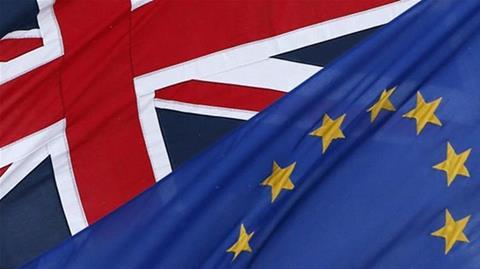Report aimed at tackling short-term challenges and securing longer-term success for the UK creative industries sector.

The Creative Industries Federation has published its Brexit Report, a 73-page document drawn on evidence from around 500 contributors at 11 meetings held nationwide.
Agreed jointly by the Federation and industry members of the Creative Industries Council, it includes recommendations aimed at tackling short-term challenges and securing longer-term success for the UK creative industries sector.
The document is being presented by Karen Bradley, secretary of state for culture, media and sport, and Greg Clark, secretary of state for business, energy and industrial strategy.
It calls for the creative industries to be put at the heart of government thinking as the UK negotiates leaving the EU.
“The challenge is to seize the opportunity sectors in the British economy and prioritise them in future trade deals and in the new industrial strategy. The creative industries are a massive opportunity for the UK government,” commented John Kampfner, the Federation’s chief executive.
“This is the fastest growing sector of the UK economy and includes all the things that Britain is famous for - from our music to our films, television and heritage. We want to work with government to safeguard the jobs, the revenues and the prestige the creative sector offers.
“While the political circumstances are constantly changing, this report produces initial recommendations and explains how the UK’s creative sector currently engages with EU so that sensible decisions can be made.”
The Federation believes that Brexit offers the chance to tackle existing problems and creates an opportunity to reboot education and training to provide young people with the skills needed for jobs in the creative sector, especially in sectors with existing skills shortages like animation and visual effects, as well as the chance to create a visa system to enable access to world-class talent.
However, the report also notes the risks to funding and investment and the regulatory framework that underpins the creative economy. Therefore, it calls on the government to:
- Conduct an audit of existing EU funding to the UK’s creative sector (especially in the regions) to identify the streams that should be replaced by the UK as part of government public support alongside tax reliefs.
- Upholds intellectual property rights including copyright in trade deals, especially with new markets with bad infringement records, and remains proactive in negotiations on the Digital Single Market and other regulatory issues with major implications for the sector.
Other concerns raised include the capacity to retain and recruit talent, the fall in sterling on planning and artists’ fees, the ability and willingness to defend UK interests in negotiations on the Digital Single Market and other areas of regulations and the loss of EU funding streams.
Amanda Nevill, chief executive, British Film Institute, said: “Film is a global business and the UK is a success story at its heart. We have this wonderful opportunity now to aspire to even greater heights of success, economically and creatively, if we can get the right framework for the future. In this time of change, film as one of the great arts has an important role in helping everyone engage with, imagine and shape a new future.”
The full report can be read here.















![[L-R]: Amanda Villavieja, Laia Casanovas, Yasmina Praderas](https://d1nslcd7m2225b.cloudfront.net/Pictures/274x183/6/4/1/1471641_pxl_20251224_103354743_618426_crop.jpg)









No comments yet